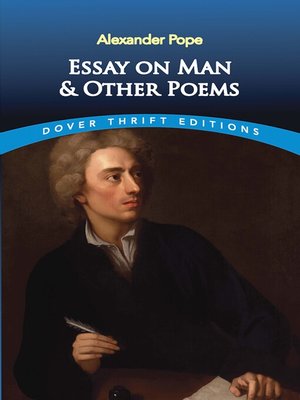
Sign up to save your library
With an OverDrive account, you can save your favorite libraries for at-a-glance information about availability. Find out more about OverDrive accounts.
Find this title in Libby, the library reading app by OverDrive.



Search for a digital library with this title
Title found at these libraries:
| Library Name | Distance |
|---|---|
| Loading... |
Considered the preeminent verse satirist in English, Alexander Pope (1688-1744) brought wide learning, devastating wit and masterly technique to his poems. Models of clarity and control, they exemplified the classical poetics of the Augustan age. This volume contains a rich selection of Pope's work, including such well-known poems as the title selection — a philosophical meditation on the nature of the universe and man's place in it — and "The Rape of the Lock," a mock-epic of rare charm and skill. Also included are "Ode on Solitude," "The Dying Christian to His Soul," "Elegy to the Memory of an Unfortunate Lady," "An Essay on Criticism," "Epigram Engraved on the Collar of a Dog," "Epistle [IV] to Richard Boyle, Earl of Burlington: Of the Use of Riches," "Epistle to Dr. Arbuthnot; or, Prologue to the Satires" and more. Taken together, these poems offer an excellent sampling of Pope's imaginative genius and the felicitous blending of word, idea and image that earned him a place among the leading lights of 18th-century literature.







